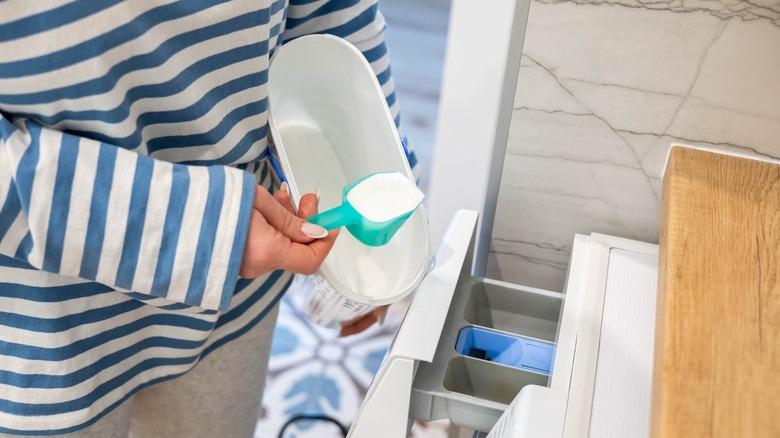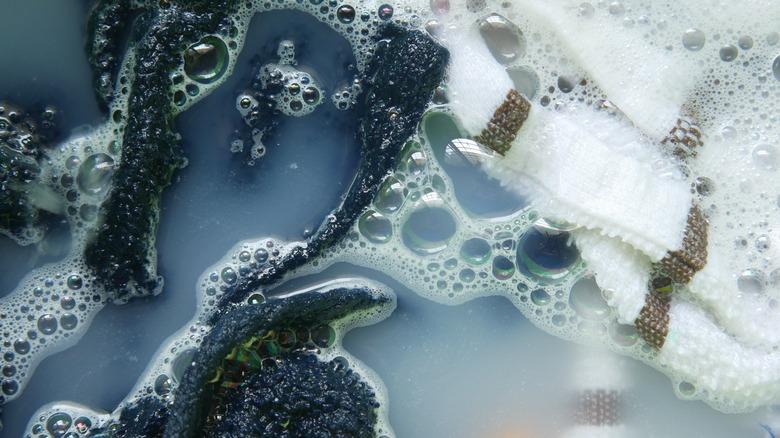Is Homemade Laundry Soap Bad? Here Are Drawbacks To Consider Before Using It
As we become more aware of the items we use around the house and their environmental impact, it can be tempting to consider switching out cleaning staples such as laundry detergent for a homemade alternative. After all, other household alternatives such as wool dryer balls, shampoo bars, and reusable food bags have become popular in recent years. However, if you are thinking about making your own clothing detergent, it is important to be aware of the potential drawbacks to using this option.
DIY laundry recipes use substitutes such as borax, baking soda, and sea salt. And while some sources claim that these ingredients are all-natural and therefore harmless, they are not what washing machines have been designed to work with. According to the Royal Society of Chemistry, commercial detergents use a surfactant, an active cleaning ingredient which pulls dirt and oil off the surface of clothes and allows them to be washed away. However, by using cleaning agents not typically found in detergents, the machine can become clogged with a build-up of the unfamiliar substances and you may end up having to clean your washer more regularly. Though small amounts of ingredients such as vinegar can aid in boosting performance and help rid clothes of funky smells, they are not stand-ins for the cleaning power of laundry detergent and store-bought brands are generally recommended above homemade ones.
DIY ingredients can cause issues
Many DIY laundry solutions also include ingredients such as liquid castile soap and bar soap shavings. This means that rather than detergent, they actually work more like traditional soap. This may not seem like a bad thing, but it can lead to a range of drawbacks, including allergies and skin reactions. Commercial detergents are formulated and tested to be gentle on lots of different types of skin. Homemade ones don't yet have that level of research behind them, so it is harder to know whether a DIY version could become a household item that is damaging to your health. If you are considering using a homemade laundry soap, then it is advisable to first try it out on a small amount of clothing in order to test whether it causes any adverse reactions on your skin.
Using the DIY washing soap out on a smaller load first is also a good idea because certain kinds of homemade detergent can actually ruin clothes. Due to the fact that the ingredients are similar to those found in soap, they can lead to a residue build-up on the fabric and can even end up making them somewhat water-resistant. This means that the clothes may develop a slimy film and become harder to clean because the oily surface repels the ingredients meant to wash them. Also, you should consult a physician before using it.

